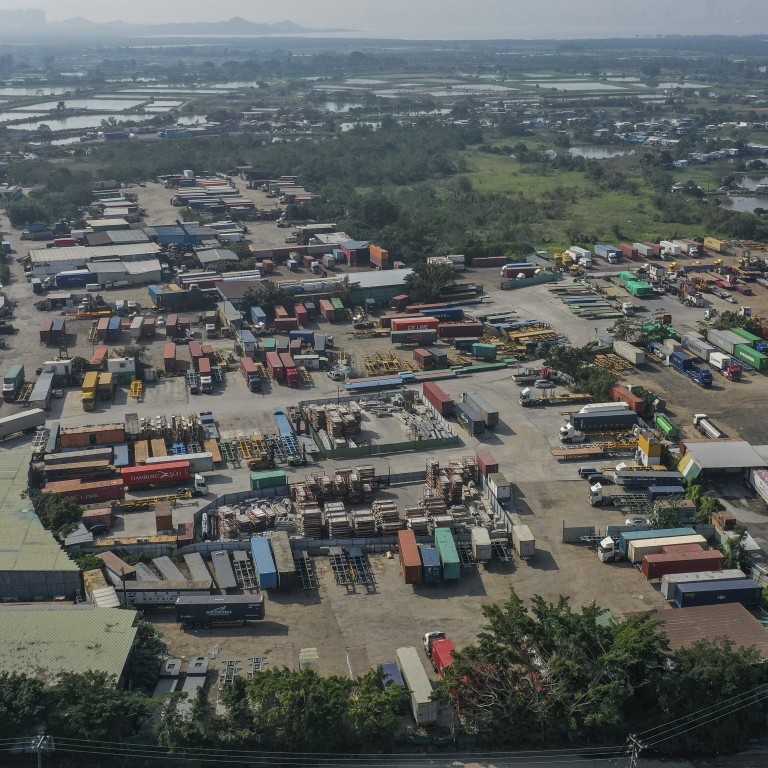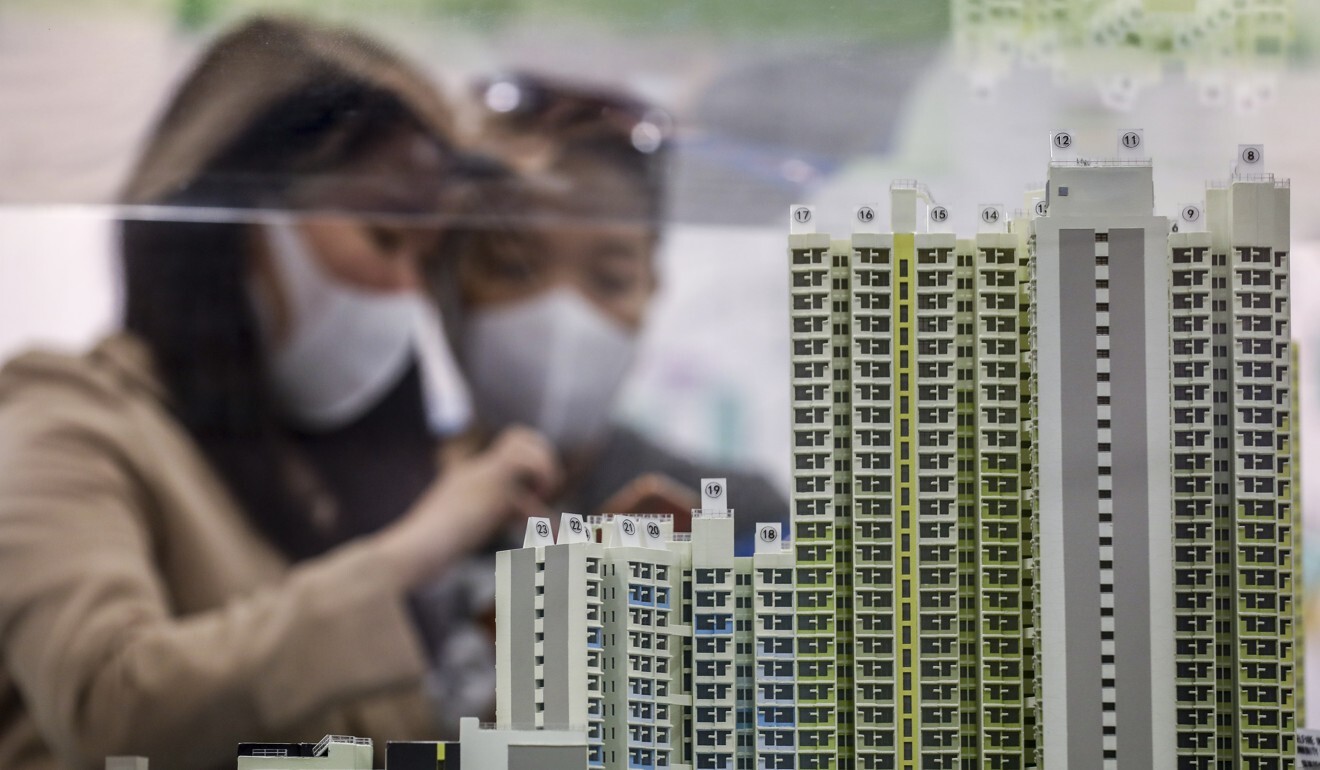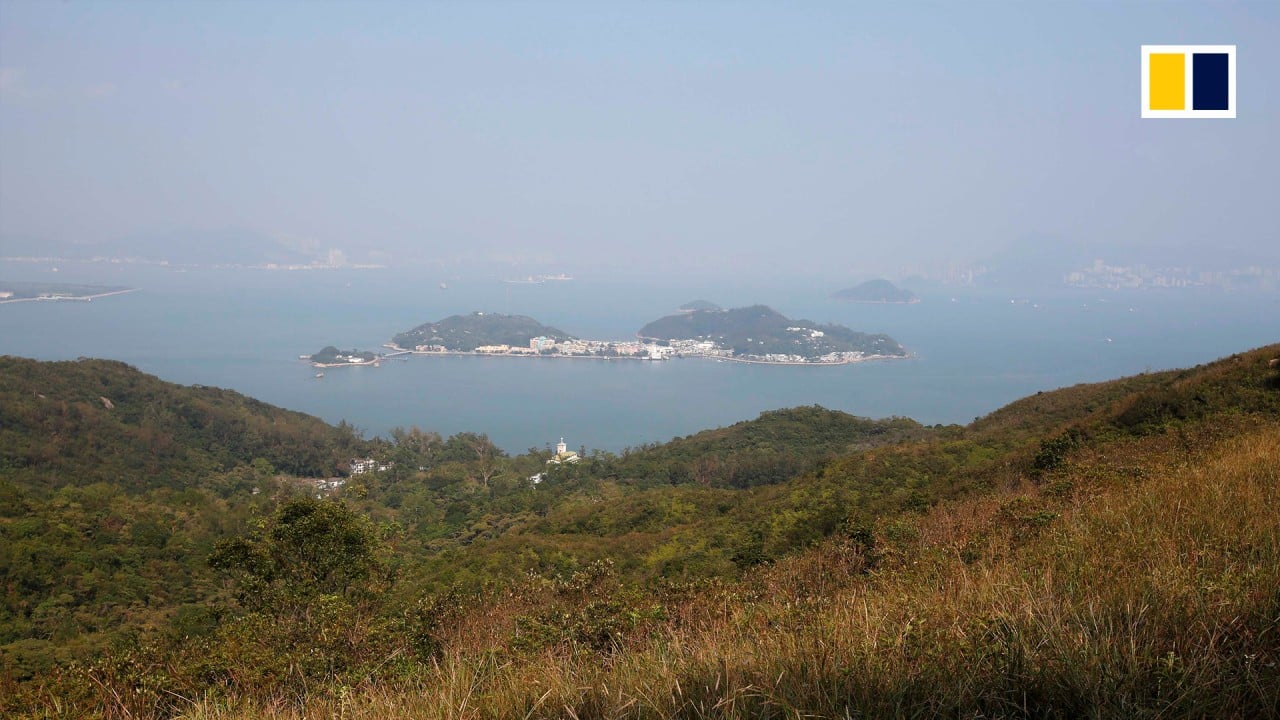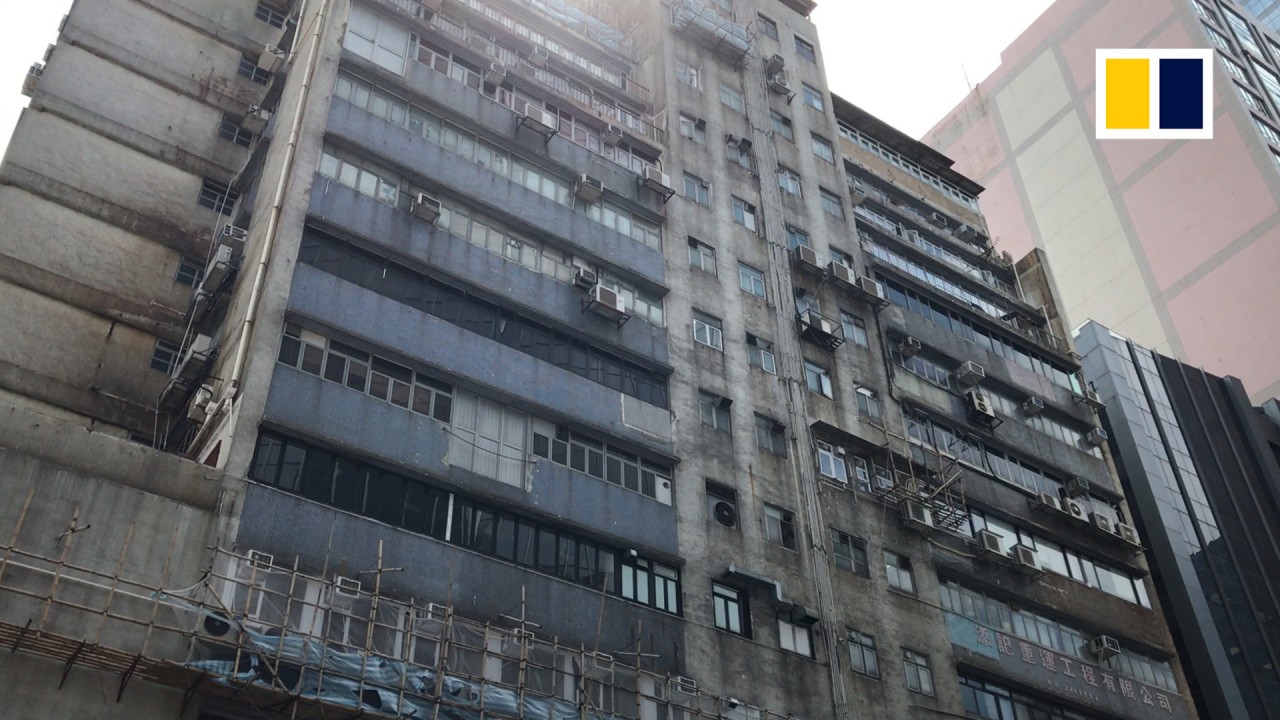
Hong Kong developers ignore scheme to boost land supply for housing by converting private reserves in New Territories
- Government incentives fail to attract developers to land-sharing scheme launched in May
- Economic downturn, pandemic leave land owners mulling their options, observers say
However, a Development Bureau spokesman told the Post it had received no submissions for the scheme, although more than 20 land owners and their representatives had made enquiries about individual sites and the feasibility of other proposals.

Hong Kong has long been plagued by a shortage of land for housing, with citizens facing some of the highest property prices in the world and cramped living conditions.
The private domestic unit price index slipped 1.7 per cent to 373.4 points in February, at the start of the Covid-19 outbreak, but edged up to 384.8 in July, higher than the average over the past decade, according to Rating and Valuation Department figures.
The government can hardly control when private developers choose to release their land reserves
Under the Land Sharing Pilot Scheme, owners of private farmland can apply to the government to increase the development density of their sites, but must set aside at least 70 per cent of the increased floor area for affordable public-sector housing.
In return, the government will carry out infrastructural improvements to enhance the development intensity of the private lots, and speed up various planning and development approvals.
Private developers have been estimated to hold at least 1,000 hectares of agricultural land in the New Territories – an area bigger than 52 Victoria Parks.
Baptist University economist Dr Billy Mak Shui-choi, a government adviser on the scheme who will vet applications, said private developers needed time to calculate whether the plan was beneficial to them.

02:43
Why Carrie Lam’s Lantau land reclamation plan is so controversial
“Developers are profit-oriented,” he said. “They have to take into consideration the current pandemic, the economic downturn of the past year, and their own schedules for sales of properties. It’s not a surprise that they will wait and see.”
Besides, he added, the developers owned the land reserves and had the choice of deciding what to do.
Another adviser, former Housing Society chairman Marco Wu Moon-hoi, warned the government against relying on private developers to boost land supply, and urged it to consider other approaches.
“The government can hardly control when private developers choose to release their land reserves, so it has to increase land supply on its own by rezoning land, or through reclamation,” he said.
Hong Kong developers rebuild cash hoard, eye bargains on market correction
The Development Bureau spokesman said it would take time for potential applicants for the pilot scheme to prepare documents, including proof of ownership, master layout plans, remedies to the environment, cost estimations, infrastructure plans and technical assessments.
“The government has no plan to amend the eligibility criteria. It remains the government’s target to convert the agricultural lots into spade-ready sites for housing construction within four to 6½ years from the time when applications are received,” he said.
In a Facebook post on Wednesday, the city leader’s sought support for the government’s efforts to increase land supply for affordable housing, including a plan for reclamation outside Victoria Harbour.
Hong Kong’s Lantau land-reclamation scheme could wipe out city’s reserves: economist
The government’s land supply task force had warned that the projection of a shortfall of at least 1,200 hectares by 2046 was an underestimation.
Its recommendations, including short, medium and long-term solutions, were endorsed fully by the government in February.
They include developing brownfield sites, making alternative use of private recreational sites like golf courses, and tapping into private agricultural land reserves in the New Territories, with the last included in the land sharing scheme.
Longer-term proposals include the Lantau reclamation scheme as well as making use of underground space and building new towns in the New Territories.

01:39
Is converting industrial buildings a quick solution to Hong Kong’s housing shortage?
Stanley Wong Yuen-fai, former head of the Housing Authority‘s subsidised housing committee who chaired the now-defunct task force, said success would depend on whether the government was able to take the various recommendations forward.
“The government can also make use of the land resumption ordinance when a project is solely planned for public interest, while launching this land sharing pilot scheme at the same time,” he said.
The land resumption ordinance gives the government power to acquire private land for established public purposes.
“Society has to understand that no choice is painless. We suggested the partial resumption of Fanling golf course for housing, even though it is controversial,” Wong said.

